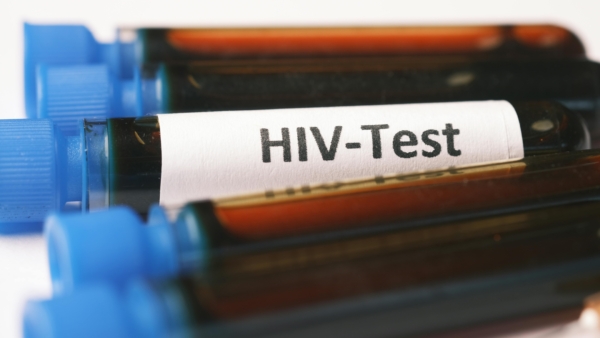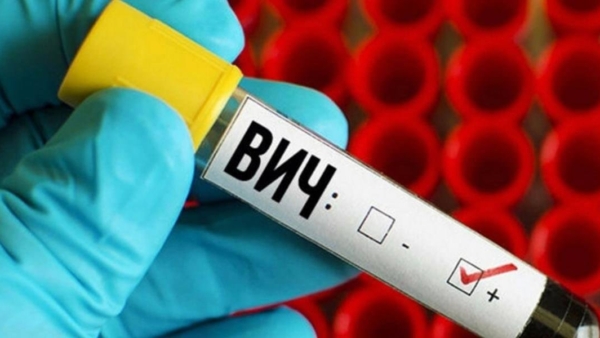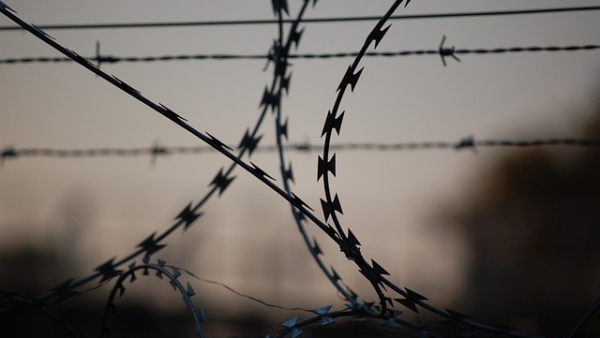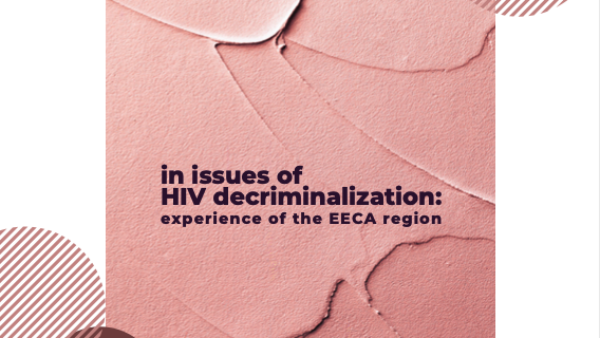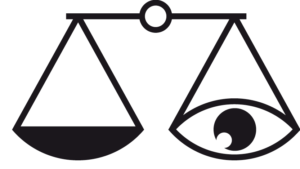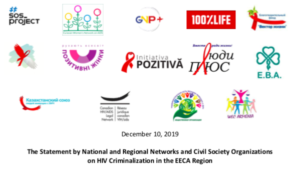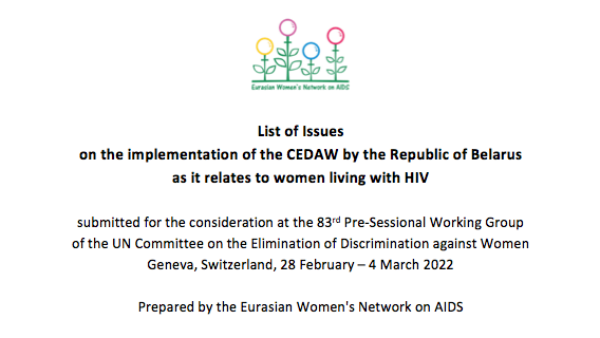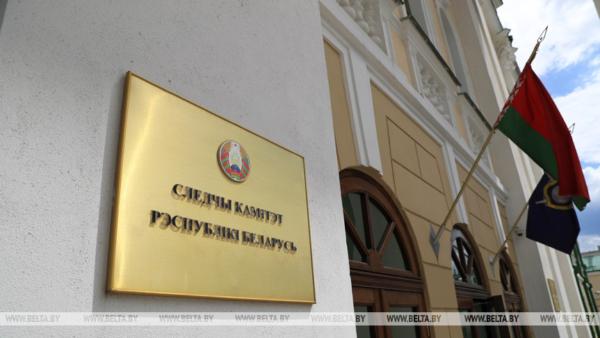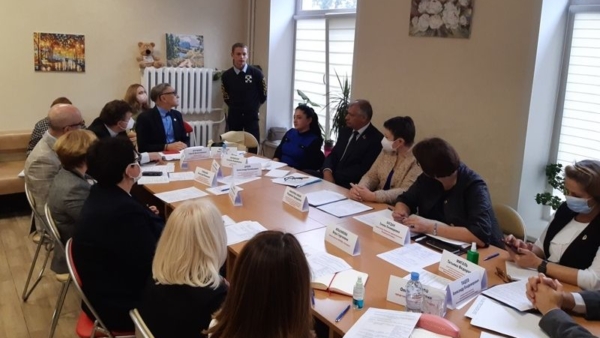Overview
Belarus uses Article 157 of its Criminal Code to prosecute both intentional and reckless HIV ‘exposure’ and transmission. Transmission does not need to occur for prosecution to be triggered. Following amendment in 2018, disclosure of HIV status is now a defence to prosecution.
Any condomless sex act by an HIV-positive individual who is aware of their status, except where they have disclosed this to their partner who has consented to the act which carries a ‘risk of infection’. Perceived ‘exposure’, non-disclosure, and transmission are therefore all subject to prosecution.
‘Knowing’ exposure is punished with a fine, detention or imprisonment of up to two years, while ‘careless’ or ‘indirectly intentional’ (i.e. reckless) transmission can result in imprisonment for up to five years. This increases to five to ten years if more than two individuals or a minor acquire HIV as a result. It is not necessary for the partner to file a criminal complaint under this provision; confirmation of sexual activity or transmission is enough, meaning proceedings can be, and often have been, initiated by healthcare professionals.
In December 2018, following sustained advocacy from local and regional organisations, part of Article 157 of the Criminal Code was amended. This amendment reduced the sentences available and removed individuals from criminal liability if they had previously disclosed their HIV status to their partner, as long as their partner had agreed to any acts that might have led to HIV transmission. This amendment also made it possible to retrospectively review the prison sentences of people who had previously been convicted despite their HIV-negative partner consenting to condomless sex, however an analysis of case reports suggest that, in practice, the success of petitions to review convictions in these circumstances is not guaranteed.
Civil society advocated for this important change to the law to tackle several issues including recorded cases of blackmail or retaliation for domestic violence allegations by estranged partners, as well as the prevalence of prosecutions against the wishes of partners, as until 2018 a large number of cases related to the prosecution of the HIV-positive partner in couples of different HIV statuses even when the HIV-negative partner was aware of their partner’s HIV-positive status, and in some cases, despite the HIV-negative partner not wishing to prosecute and/or when protective measures were taken. This acted as a deterrent to care and treatment access as people did not want to register with care providers and risk prosecution.
Article 157 has been applied predominately in cases involving sexual ‘exposure’ or transmission. However, a case reported in 2024 demonstrates that other routes of alleged ‘exposure’ or transmission can result in prosecution. In this case, a court found that a pregnant woman living with HIV was criminally responsible for transmission to her baby during pregnancy. It was alleged that the 29-year-old woman did not take antiretroviral therapy or register at an antenatal clinic during her pregnancy. She was sentenced to five years’ imprisonment under Article 157.
The first prosecution recorded by HJN was in 2001. We do not know if this was the first case in the country as the law was enacted in 1999. As of our Advancing HIV Justice 3 report (2019), Belarus had the highest rate of criminal cases per diagnosed HIV cases anywhere in the world. However, recent statistics have suggested that the number of cases has fallen markedly following the 2018 amendment; there were 130 and 133 criminal cases in 2017 and 2018 respectively, followed by 71 in 2019 (the amendment came into force in July 2019), and 37 and 38 in 2020 and 2021. It was reported by the Belarus Investigative Committee that 34 criminal cases were opened in 2021 related to HIV infection. In the first half of 2022 there were 16 registered cases under Article 157, which is roughly consistent with recent years. In its 2018-2022 Criminalisation Scan in Eastern Europe and Central Asia, the Eurasian Women’s Network on AIDS (EWNA) reported that there were 588 cases under Article 157 from 2007 to June 2022, 305 of which related to ‘exposure’.
According to Internal Affairs data, since 2001 at least 426 people have been convicted under Article 157. The EWNA report recorded 129 convictions between 2018-2021 alone, 82 of whom (64%) were women. Sentences are often severe; in January 2021, a woman was sentenced to eight years’ imprisonment under Parts 1 and 3 of Article 157 for alleged HIV transmission and perceived ‘exposure’.
Civil society has consistently advocated for full decriminalisation. In 2018, the Ministry of Health expressed support for a proposal by the NGO People PLUS and other organisations to repeal the ‘exposure’ section of Article 157, however this proposal was not adopted by government. In December 2020, the government announced it was formally considering repealing Articles 157 and 158 of the Criminal Code; a direct result of advocacy by People PLUS, with support from the Belarusian Red Cross Society, UNAIDS and the WHO. While the upper sentence limits were reduced in 2021, the law has not been repealed and prosecutions continue to take place including as recently as 2021.
The Criminal Code also includes HIV status as an aggravating factor in sentencing for rape and violence sexual assaults, increasing the penalty to eight to 15 years’ imprisonment.
The Law on Health Care enables, under Article 28, mandatory examination of those confirmed or suspected to be living with HIV, as well as forced hospitalisation of those who fail to voluntarily adhere to treatment. Further, foreign citizens who are living with HIV who refuse treatment may be deported under this law. The EWNA has reported that this law has been the basis for door-to-door police raids of people living with HIV who are believed not to be taking treatment to ensure they comply with a treatment regimen.
Furthermore, there is a list maintained of professions which people living with HIV are forbidden from occupying, which includes any health or social care role.
Laws
Criminal Code of the Republic of Belarus July 9, 1999 No. 275-Z
Article 157. Infection with human immunodeficiency virus
1. Knowingly placing another person at risk of contracting the human immunodeficiency virus (HIV) – is punishable by a fine or arrest or imprisonment for up to two years.
2. Infection of another person by the carelessness or indirect intent of HIV by a person who knew he or she had the disease – is punishable by up to five years’ imprisonment.
3. The action provided for in paragraph 2 of the present article, committed against two or more persons, either knowingly or with the direct intent of a minor – is punishable by five to ten years’ imprisonment.
Note. A person who has committed the acts referred to in paragraphs 1 or 2 of this article shall be exempt from criminal liability if another person who has been put at risk of infection or infected with HIV has been timely warned about the presence of this disease in the first person and has voluntarily agreed to perform acts that have created a risk of infection.
Article 166. Rape
(…)
Part 3. Rape of a known minor or rape resulting in death by negligence, or grievous bodily harm, or HIV infection or other serious consequences – Part 3. is punishable by eight to fifteen years’ imprisonment.
Article 167. Violent acts of a sexual nature
(…)
Part 3. The acts referred to in paragraphs 1 or 2 of this article, committed in respect of a person known to be a minor (young child), or resulting in the death of the victim (or victim) by negligence, or grievous bodily harm, or exposure to HIV or other serious consequences, -are punishable by eight to fifteen years’ imprisonment.
Further resources
An analysis of the legal environment in Georgia, The Republic of Belarus, The Kyrgyz Republic, and The Republic of Uzbekistan in the context of the criminalisation of people living with HIV.
This analysis, published in 2022 by the Eurasian Women's Network on AIDS, examines the current state of the law in Belarus and three other countries in Eastern Europe and Central Asia, documenting the scope of the law and reported cases. It includes a list of recommendations on how the law should be improved.
This report is available in Russian.
Authors: Eurasian Women’s Network on AIDS (EWNA)
Regional HIV criminalisation report that summarises the state of play regarding HIV criminalisation laws and known prosecutions in the EECA region.
Authors: Eurasian Women’s Network on AIDS (EWNA)
Regional HIV criminalisation report that summarises the law and prosecution data in each country in the EECA region.
HIV Justice Network's Positive Destinations
Visit the Belarus page on Positive Destinations for information on regulations that restrict entry, stay, and residency based on HIV-positive status, as well as access to HIV treatment for non-nationals.
